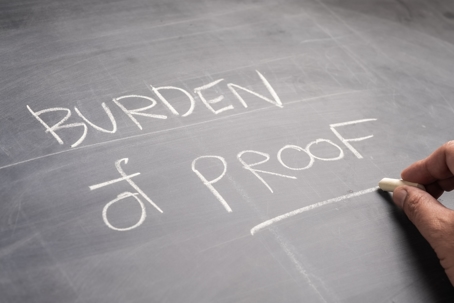In a recent blog, we discussed the burden of proof in a criminal case, which is proving guilty beyond a reasonable doubt. The burden is lower in civil cases, such as when someone sues someone else.
Unlike in criminal cases, where the government alleges that someone (a defendant) committed a crime, civil cases allow a person or entity to bring a lawsuit against another person or entity. The person starting the lawsuit is referred to as the plaintiff, while the person being sued is called the defendant. Typically, when a plaintiff sues a defendant, the plaintiff alleges that the defendant did something unlawful, whether it was acting negligently, breaching a contract, or violating a person’s constitutional rights.
Since the plaintiff is the one who begins the lawsuit, the plaintiff has the burden of proof, which means that the plaintiff is responsible for convincing a jury that the defendant did something wrong. However, whereas the burden is very high in a criminal case, in civil cases, the burden is much lower. A plaintiff must convince the jury to win a civil case by “a preponderance of the evidence.” Simply said, a plaintiff must prove that there is a greater likelihood than not that the defendant did something wrong.
Here's a good way to think about it. Everyone knows about the scales of justice. At rest, the scales are balanced, and no side is heavier than the other. In civil cases, all it takes is the weight of a feather to establish a preponderance of the evidence. The feather's weight tilts the scales ever so slightly, and that slight tip means that the plaintiff wins. This is quite a bit different than in criminal cases, because in criminal cases, the government must exclude every reasonable doubt to win.
Whether civil or criminal, it is always a good idea to get an attorney involved as soon as possible to review your case's facts and potential outcomes. If you are the defendant in a criminal case, you will need an attorney to review the case details to determine the prosecutor’s burden to prove you are guilty. On the other hand, if you are the plaintiff in a civil case, you will need an attorney to confirm that the defendant did something wrong against you, causing injury or damages. Our office handles both types of cases. Contact our office at (662) 545-4445 for a consultation where we will review your case's facts and discuss the processes that you can expect for civil or criminal cases.

